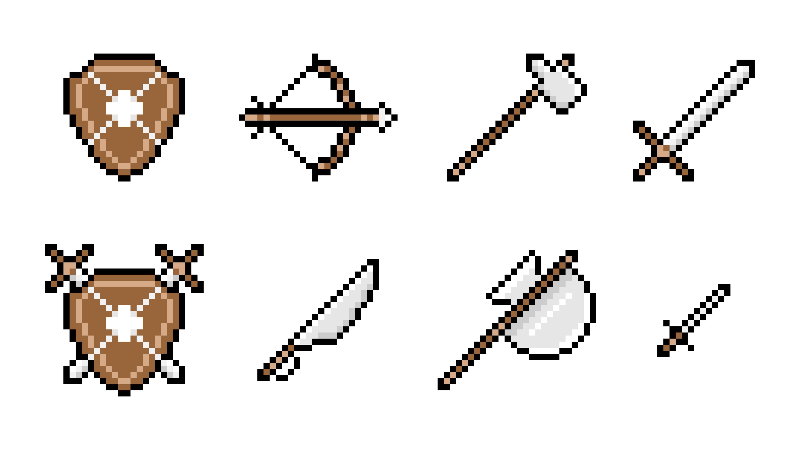Here Comes the Pain: Warframe Damage Guide
By Yi Xiaomei | November 7th, 2018 | Categories: Warframe
For many new players of Warframe, the damage system may seem like one that’s easier to ignore or, at least, to oversimplify: bigger numbers mean more dead enemies and that’s that, right? Well, in reality, damage in Warframe is a good deal more complex. There are over a dozen different types of damage you can inflict (or have inflicted on you), each with unique effects, strengths, and weaknesses—and that’s not even touching on critical hits! Fortunately, our Warframe Damage Guide is here to untangle the intricacies of all the different ways to bring the pain in Warframe.
Table of Contents
What kinds of damage can I deal in Warframe?
The reason a Warframe Damage Guide is even needed in the first place is that the damage system in the game is so much more complicated than in most third- and first-person shooters. In most other games, the damage is damage, with a handful of elemental types occasionally added for variety. In Warframe, there are three different types of physical damage alone, not to mention eleven kinds of elemental damage!
So what are these myriad damage types? For physical damage, they include Impact, Puncture, and Slash damage, sometimes abbreviated to IPS. As for elemental damage, there’s Cold, Electricity, Heat, Toxin, Void, Blast, Corrosive, Gas, Magnetic, Radiation, and Viral damage. Each of these different damage types has its own strengths and weaknesses, as well as unique Status Effects, which we’ll touch on later in our guide.
For more Warframe, check this out: Warframe Amp Guide to Uncover the Mystery
What are the most effective damage types against Grineer, Corpus, and Infested enemies?
Damage types in Warframe can be tricky to match to enemy factions, as their strengths and weaknesses are often on the level of individual health classes rather than enemy factions as a whole. For example, Slash damage is more effective against the Cloned Flesh health class possessed by all humanoid Grineer enemies, but much less effective against Alloy Armor, possessed by Grineer heavy units, like Bombards and Nox. That said, there are a few cases of elemental types being particularly useful against certain factions.
Against the Grineer, Corrosive, Radiation, and Puncture damage is especially effective. Against the Corpus, there’s Magnetic, Electricity, Toxin, and Cold damage. Finally, for the Infested, Slash, Heat, Gas, and Corrosive damage are best. Note that these suggestions are based on the increased damage these damage types deal with certain enemy types within those factions; we haven’t even gotten to the Status Effects that really make them stand out!
What are Status Effects?
Status Effects, commonly known as “procs” among players, are bonus effects that have a chance to be triggered each time a weapon, projectile, or ability makes contact with an enemy. Every damage type has a chance of inflicting a unique Status Effect, the probability of which is affected by the weapon’s or ability’s Status Chance. Note that Status Chance operates independently of damage inflicted; in other words, your weapon will still inflict damage even if a Status Effect is not triggered. That means a weapon can still benefit from high Physical or Elemental damage even if it has a low-Status Chance. In addition, only one Status Effect can be triggered by a single projectile or strike. This means that if you have a weapon that deals high Slash and Corrosive damage, for example, it may inflict a Slash proc with one bullet and a Corrosive proc with the next, but not both procs with a single bullet. Finally, keep in mind that players aren’t the only ones who can make good use of Status Effects; enemy attacks also have a chance of inflicting Status Effects against players, so watch out!
For more Warframe, check this out: A Warframe Index Guide with Answers
What Status Effects are associated with the different damage types?
Let’s start with the physical damage types. Impact damage has a chance of causing a Knockback proc that staggers the target for one second. Puncture damage has a chance of inflicting a Weakened proc, which reduces the target’s damage output by 30% for six seconds. Slash damage has one of the most useful procs, called Bleed, which deals additional damage over time for six seconds.
For more Warframe, check this out: How to Get Ivara Warframe Properly
How do critical hits work in Warframe?
Thankfully, critical hits in Warframe are much more straightforward. Critical hits inflict additional damage, the amount of which is decided by the weapon’s Critical Damage Multiplier. Each projectile or strike has its own probability of landing a critical hit, which is affected by the weapon’s Critical Hit Chance.
What makes Warframe’s critical hit system interesting is that it’s possible to increase a weapon’s Critical Hit Chance past 100%. When this happens, every projectile or strike is guaranteed to produce a critical hit. What’s more, it also has a chance of landing an orange crit, which deals more damage than a normal crit. You can tell if you’ve landed an orange crit because the inflicted damage will be displayed in orange numbers. If you go even further and increase your weapon’s Critical Hit Chance past 200%, you can land red crits, which, you guessed it, deal even more damage than orange crits and are distinguishable by red numbers when the damage is displayed. On high-damage weapons such as bows and sniper rifles, pushing up the crit chance like this can lead to ridiculously high damage output.
Doing Damage
With all the different kinds of Damage Types, Status Effects, and Critical Hits you can inflict, the damage is a surprisingly deep aspect of Warframe gameplay. We hope our Warframe Damage Guide has given you some new ideas for creative ways to keep your damage output climbing.
For more Warframe, check this out: How to Rank Up in Warframe Methodically















